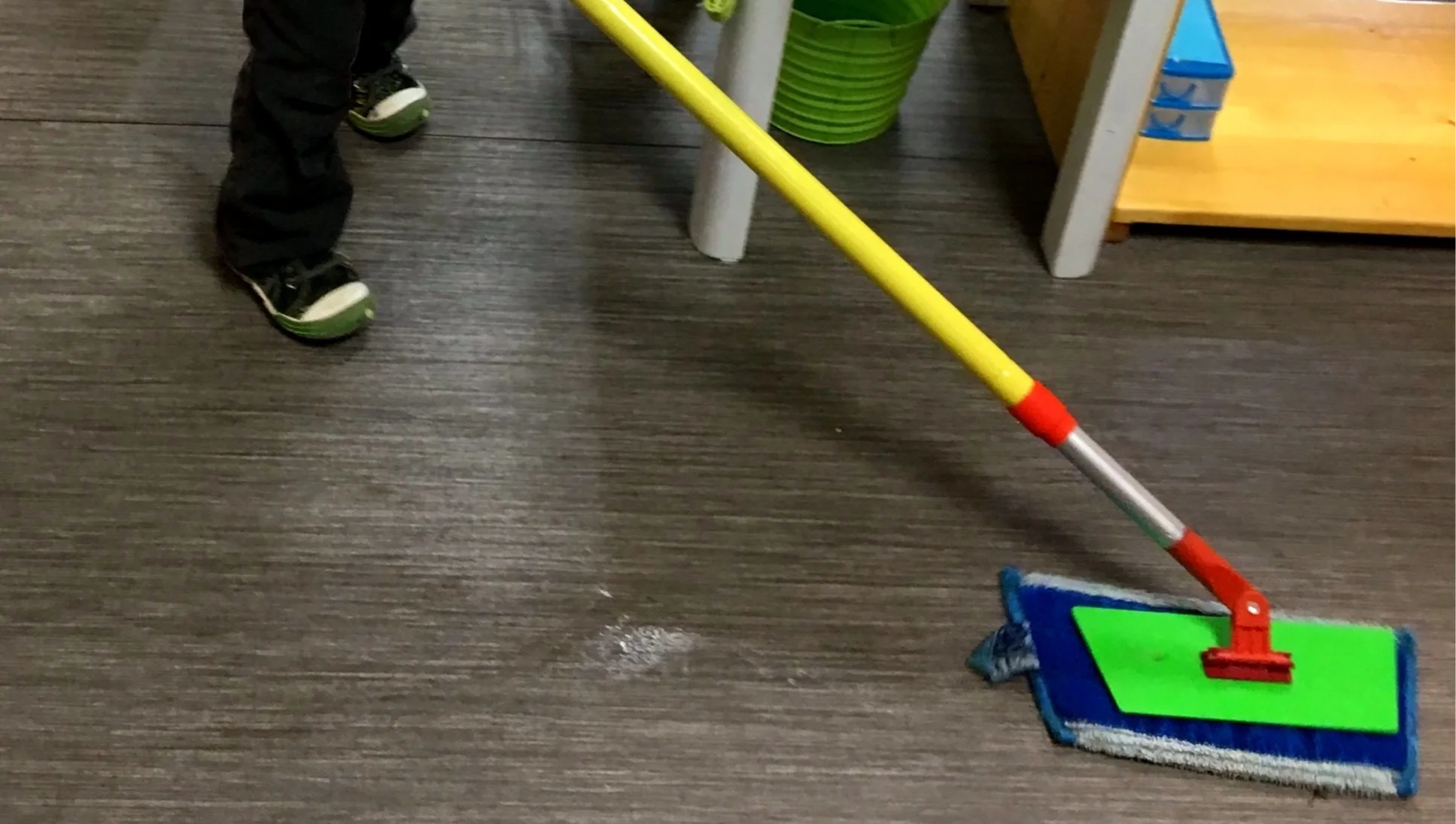It had been a day with a lot of water activities. Someone had watered the plants (and the floor from the sink to the plants), someone had washed the linens (and had sloshed their pitcher all the way to the basins) another child was busy washing their hands at the basin over and over again. Dishes were being done with great enthusiasm. For what seemed like the hundredth time I invited a child to mop for us, pushing the mop from one shiny spot on the floor to another. My co-teacher was gone that day and we had our wonderful supply teacher in. After another turn around the room with the mop she asked me, “How are you so calm about all the water on the floor?” My response, “Oh, it’s just another opportunity to practice mopping.” She looked stunned for a minute, then a smile played on her lips, “What a brilliant way to think.”
I remember the first time my trainer at The Montessori Institute said any spill or paint on the wall or anything that we would usually deem a mess is just an opportunity to practice another skill. It was a lightening blot moment for me. I remember being in my classroom before and getting flustered or anxious as children would cut snippets into a pile on the floor or pour water from their drinking cup onto the table. I had trouble understanding that mess, disorder, was an opportunity at practicing the creation of order - a skill that young children are just learning. Since that lightening bolt moment I use that line both out loud and in my head every day. It gives myself and the children in my care permission to settle into our work, to not fret over everything being perfect and clean at every moment, to make mistakes, have accidents and recover from them.
You remember the saying “Don’t cry over spilt milk?” How many times have our children spilled or broken or mussed and our first reaction has been anger or frustration? The agitation of disorder and knowing that we have to clean something up flares our emotions. I can’t remember where this came from but here’s the general idea: Spilt milk takes moments to clean up, shaming a child because of a mistake or an accident takes years to recover from. And the amazing thing is, in raising our children to be resilient, in recognizing their capabilities, in giving them tools - both psychologically and physically, we don’t even have to do the clean up - THEY do it. So when my daughter cries, “Mom, I got paint on the wall.” I don’t have to feel frustrated and rush to the scene - I can now just call back - “It’s ok, you know how to clean it up.” For our youngest children who are just starting to make messes, it may be as simple as a cloth and a spray bottle. For our oldest - they don’t even need to be told that if they spill it’s their responsibility to clean, because we have already set that expectation. Instead of being angry and frustrated we can funnel that energy into showing how to clean, in modelling orderliness, in modelling making a mistake, having an accident and recovering from it.
Accidents, mistakes, messes, they are a part of life, it’s our reaction we can control. Re-frame that spill as an opportunity for practicing a skill and eventually, it’s an opportunity to excel, to be independent, to be resilient.
